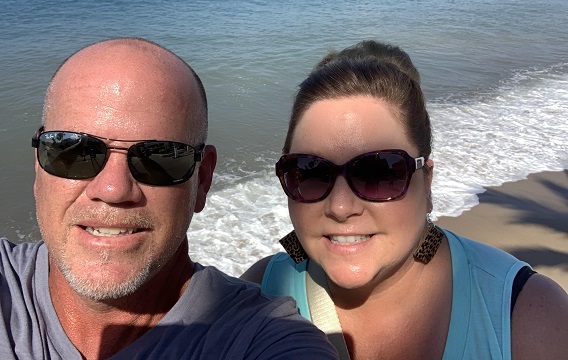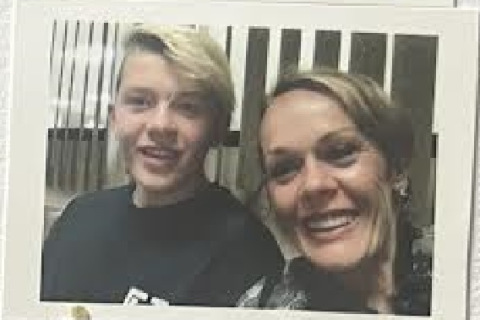Mesothelioma Survivor Is Thankful for His Support System

Fact Checked | Written by: Travis Rodgers | Last Update: 04/02/2025 | 3 Min Read
Shaun Bigbie says he’s had a lot of help throughout his mesothelioma journey. And his journey has been challenging, with a diagnosis of a rare form of cancer at 53 and two major surgeries to treat it.
“I have a strong support group,” Shaun tells the Mesothelioma Center. “I have my girlfriend and she’s basically all I need. She’s helped me out with words of encouragement and motivation.”
After surgery with heated intraperitoneal chemotherapy and then surgery with heated intrathoracic chemotherapy a few months later, he says he needed positive motivation. Recovery from HIPEC and then HITHOC surgeries is no small feat.
“She’s always positive,” he tells us. “If I feel down, she has enough positivity in her to throw back at me to fight against my negative thoughts. For instance, when I got back home after both surgeries, she basically had to do everything for me. She would make my meals even though I didn’t want to eat. She’s always been there for me and pushes me in a good way.”
Managing Mesothelioma Pain and Mental Health Challenges
Managing mental health after aggressive surgery can be challenging for both patients and caregivers. Shaun says he’s experienced challenges and appreciates how his girlfriend has been there for him.
“I told her on the first day after my first surgery – I looked at her and said – I don’t know if this is worth it,” Shaun recounted. “She said, ‘You don’t need to think like that, it is well worth it. You’re not thinking about that right now because of your position, but once you get well enough you will.’”
Pain can heighten stress, leading to depression and anxiety. Following mesothelioma surgery, pain is common.
“I was in so much pain,” he shares. “I’m not a quitter by any means, but once all of this weight is thrown on your shoulders it’s definitely a reality check. It makes you stop and check your priorities in life, that’s what it did for me.”
Shaun adds, “There are a lot of things that aren’t important now that maybe used to be. I’ve always been somewhat easy going and laid back, but now there really aren’t too many really serious things.”
Expressing Appreciation and Sharing Advice
Shaun deeply appreciates his girlfriend’s support. He’s also grateful for friends he can rely on during his most challenging days
“Of course I also have good friends checking up on me,” Shaun tells us. “I have people at work asking about me too.”
He says he’s very appreciative of all of the help he’s gotten along the way. He says he knows there are many people who aren’t lucky enough to have family or a built-in support system like he has.
“A lot of people in my situation don’t have the support that I have,” he adds.
For others diagnosed with mesothelioma, Shaun wants to make sure they keep looking on the bright side. He advises they don’t take things too seriously and to never give up.
“You’ve got to have hope and you need to have strength and know that it’s not the end as long as you believe it’s not the end,” he says. “You have to fight. After two major surgeries I don’t know what’s ahead, but I know you have to stay positive. You have to have a sense of humor and just be able to laugh sometimes.”





